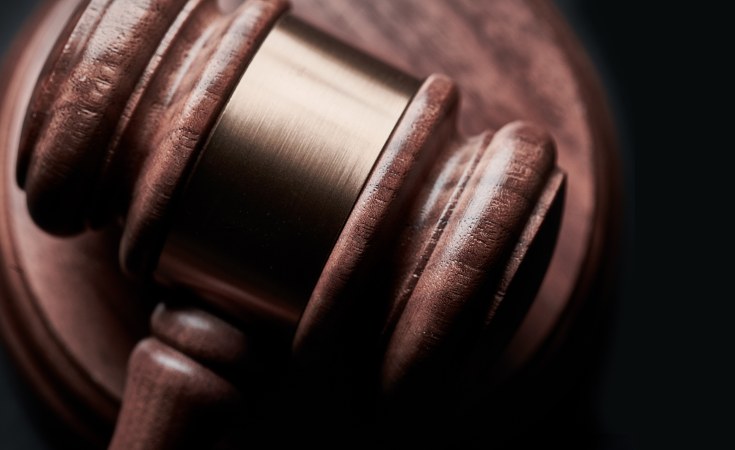THE state has shown that it has a strong case against one of the key figures in the Fishrot fishing quotas fraud and corruption case, businessman Tamson 'Fitty' Hatuikulipi, a judge has remarked in the Windhoek High Court.
Acting judge David Munsu made the remark in a ruling in which he on Tuesday dismissed Hatuikulipi's second application to be granted bail.
Munsu concluded in his ruling that the new facts on which Hatuikulipi relied for his request to be granted bail did not establish a perspective that impacted on the old facts on which his first bail application was turned down in the Windhoek Magistrate's Court in July 2020.
The new grounds were a claim by Hatuikulipi that the state's disclosure of its evidence in the matter showed it did not have a strong case against him, his continued pretrial incarceration more than three years after his arrest, the expectation that his trial would be protracted, and a deterioration of his personal circumstances since his arrest, the judge summarised.
Munsu said he found that the state had made out a strong prima facie case against Hatuikulipi during his bail hearing, which started in July this year.
The alleged offences over which Hatuikulipi (41) is charged in connection with an alleged scheme to unlawfully exploit Namibian fishing quotas - including counts of fraud, bribery, racketeering and money laundering - are serious and involve a large amount of money, Munsu said.
He noted that an Anti-Corruption Commission investigator testified during the bail hearing that Hatuikulipi received financial benefits of more than $75 million from his alleged involvement in a scheme to divert income realised from fishing quotas supposedly allocated for "governmental objectives" to himself and co-accused in the Fishrot case.
According to Hatuikulipi - a son-in-law of former minister of fisheries and marine resources Bernhard Esau, who is also charged in the Fishrot case - money paid to him by the Icelandic fishing company group Samherji, which is at the centre of the Fishrot case, was for consultancy services delivered by him.
However, former Samherji executive Jóhannes Stefánsson, who blew the whistle on the Icelandic companies' alleged involvement in corruption in the Namibian fishing sector, has stated in an affidavit that consultancy agreements between Hatuikulipi and Samherji companies were dummy deals meant to cover up the payment of bribes by the companies to get access to Namibian fishing quotas, Munsu also noted.
He said it appeared from the state's evidence during the bail hearing that the case is ready to proceed to trial. Munsu added that any delays in the matter are at this stage not caused by the prosecution, but by co-accused of Hatuikulipi - some of whom are trying to get the judge to whom the matter has been assigned for trial to step down from the case.
On Hatuikulipi's complaint that the circumstances in which he and his co-accused are being detained at Windhoek Correctional Facility are inadequate for them to properly prepare for their trial, Munsu said that was a genuine concern that the prison authorities should look into.
Namibia's Constitution protects the right to a fair trial, which includes having the opportunity to prepare for a trial, he remarked.
Quoting from a 1992 High Court judgement often cited in bail rulings in Namibia, Munsu recapped that the risk of an injustice being inflicted on an accused person if they are not released on bail before their trial would be diminished when it is shown in a bail application that there is a strong prima facie case against an accused facing serious charges on which they are likely to receive a heavy sentence if convicted. In the same situation, the risk of prejudice to the state would increase if an accused person is released on bail prior to trial.
The fact that someone has spent three years in custody before their trial does not automatically entitle them to bail, he remarked.
Munsu added that a court must strike a balance between protecting the liberty of accused persons who are presumed innocent until proven guilty and the interests of the proper administration of justice. The seriousness of charges faced by an accused and the strength of the state's case are pertinent facts to be considered by a court in that regard, he said.
He also stated that alleged violent crimes and serious monetary offences, such as those involving the theft of public funds, could no longer be differentiated in bail applications.
Hatuikulipi has been held in custody since his arrest near the end of November 2019. After his and Esau's first application to be granted bail was turned down in the Windhoek Magistrate's Court in July 2020, an appeal against that decision was dismissed in the High Court in February 2021.
Defence lawyers Richard Metcalfe and Florian Beukes represented Hatuikulipi during his bail hearing before Munsu.
Prosecutor Hesekiel Iipinge represented the state.


